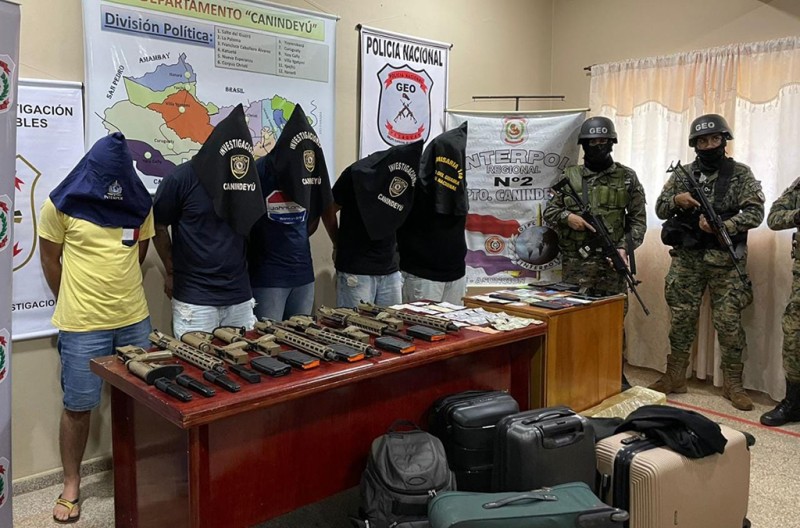Illegal weapons often go together with drugs, and during the operation, officers seized 203 tons of cocaine and other narcotics, together worth US$5.7 billion. They also seized 372 tons of drug precursors.
The seized weapons have been linked to several crimes, including armed robberies and murder. The investigation showed close links between firearms and drug trafficking, with many countries reporting record drug seizures in the past year, along with a spike in drug-related violence.
The operation was the result of a collaboration between 15 countries, and it helped uncover other criminal activities such as corruption, fraud, human trafficking, environmental crime, and terrorism.
Firearms experts from participating countries were gathered at an operational hub in Foz do Iguaçu in the Tri-Border Area, located between Argentina, Brazil, and Paraguay. From there, they supported the frontline actions and ensured intelligence was swiftly exchanged and cross-checked.
According to the Interpol news release, 20 criminal groups were disrupted, and members of Primeiro Comando da Capital (PCC), Mara Salvatrucha (MS-13), and the Balkans Cartel, all involved in firearms trafficking, were arrested. Several firearms dealerships in Brazil and Paraguay were shut down following the identification of irregular transfers and unlicensed sales.
In addition, 11 victims were rescued in Paraguay when authorities dismantled a human trafficking ring.
In Uruguay, authorities seized 100,000 pieces of ammunition that were being trafficked internationally by two European nationals. It was the largest-ever seizure in the country.
Around 30 investigations were opened as a result of actions on the ground, and 15 new modus operandi for the illicit manufacturing, trafficking, and concealment of firearms were identified.
Interpol Secretary General Jürgen Stock highlighted the need for greater information sharing on linked organized crime activities and the unique value of Interpol in supporting efforts in the field.
“The organized crime networks behind all of these illicit activities have only one priority, which is profit. We, as law enforcement, must be equally determined to dismantle them across every region and globally,” concluded Secretary General Stock.
The operation was supported by Interpol’s global tools, including the Illicit Arms Records and Tracing Management System (iARMS) and the Interpol Ballistic Information Network (IBIN), enabling officials to compare images of ballistic fingerprints from fired casings and projectiles to establish links between crimes worldwide.



